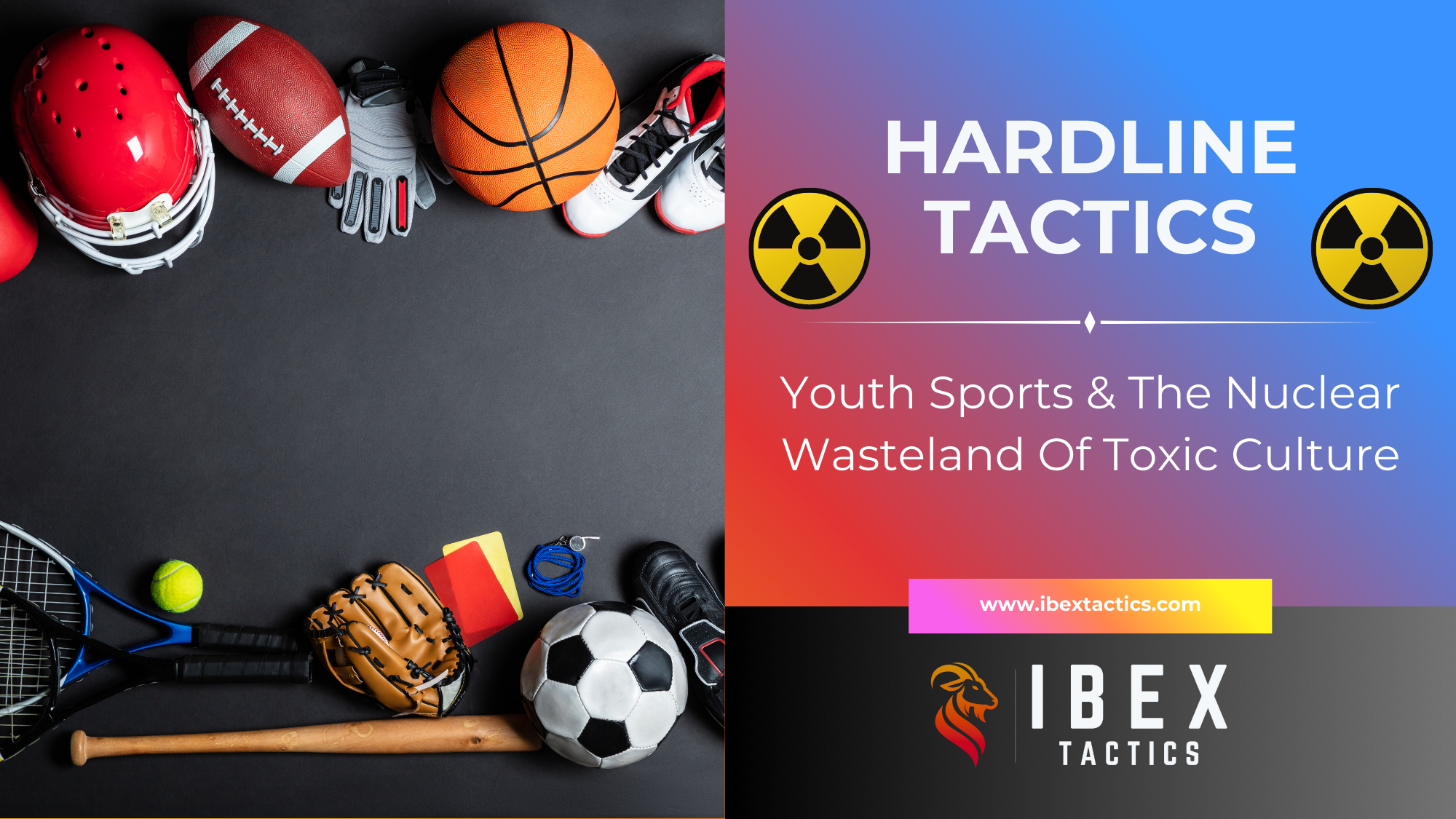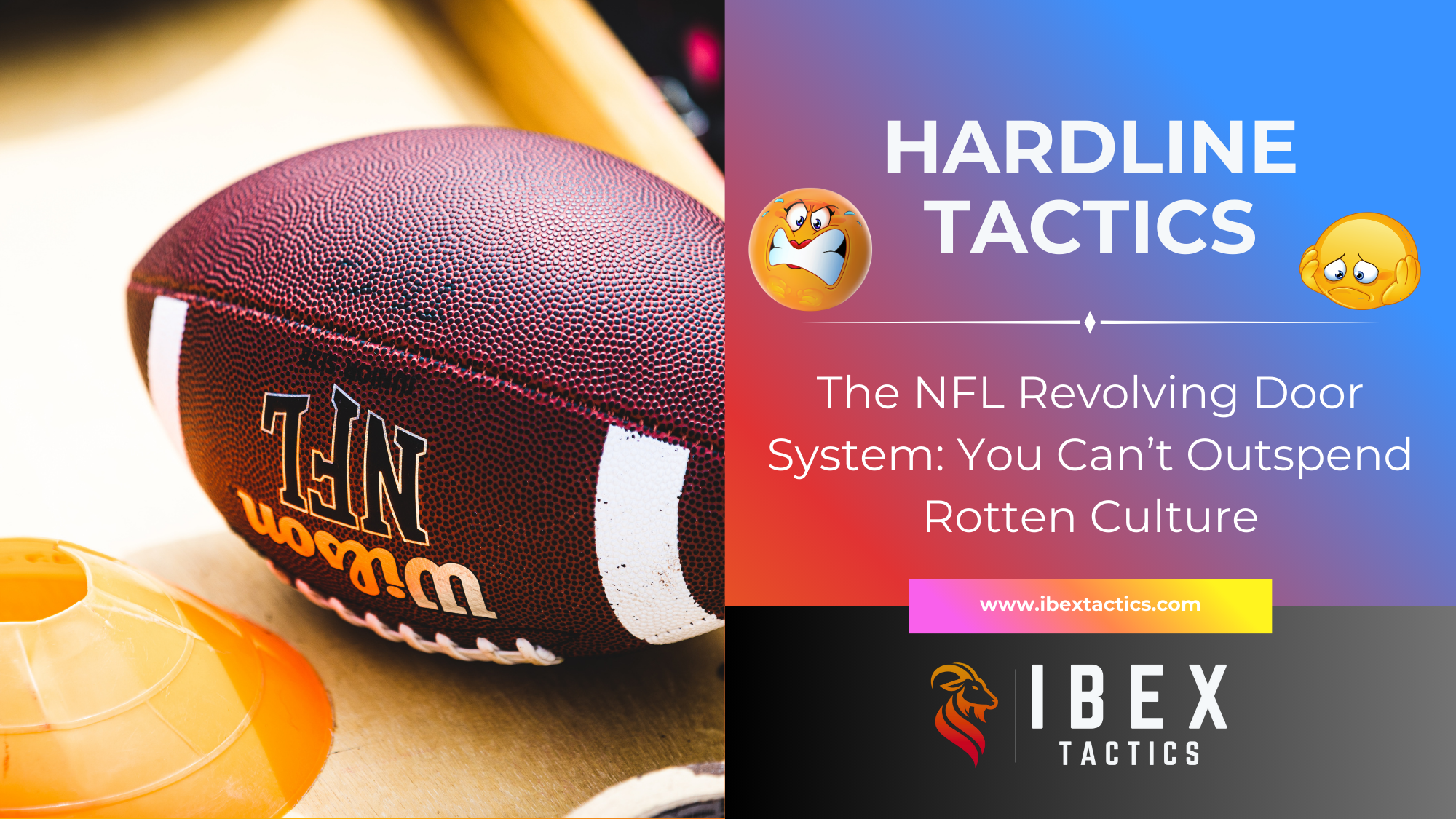Youth Sports & The Nuclear Wasteland Of Toxic Culture
About Case Study Authors
Ibex Tactics LLC, was founded by Alex Bolowich & Ben Foodman. Before starting the company, Alex and Ben were working with athletes on an individual basis, helping them improve their mental performance using sport psychology-based interventions. While both professionals had incredible success working with some of the world’s most elite athletes, a significant portion of the time they were unable to help some of their clients due to the poor cultures these athletes were immersed in. As a result, Alex and Ben created Ibex Tactics LLC, which dedicated towards providing science-driven solutions to helping teams build resilient cultures.
TABLE OF CONTENTS
INTRODUCTION: The Toxic Culture Of Youth Sports
PART I. How Do You Know If Your Team Has Toxic Culture?
PART II. Why Do Youth Sports Become Toxic Environments?
PART III. How Performance-Optimized Culture vs. Toxic Team Culture Influences Human Biology
PART IV. How Youth Sports Can Help Athletes Rather Than Destroy Them
Introduction: The Toxic Culture Of Youth Sports
Was the title a little too dramatic? We don’t think so! If anything, we think we are being tame. We have quite a bit of experience dealing with youth sports, in fact…one might argue that Ibex Tactics was founded because of youth sports. Let us give you a little bit of the background about how youth sports are part of the Ibex Tactics origin story. You see, Alex and Ben previously operated their own individual mental performance businesses. Frequently, coaches and parents would reach out and ask Alex and Ben if they could help their son and/or daughter with the following issues: difficulty with mental toughness, lack of aggression, no motivation, not having fun, difficulty with focus, overthinking too much, can’t handle the pressure. Does any of this sound familiar? Many of the athletes that would go to work with Alex and Ben would have success overcoming these issues.
However, there were also many athletes that were unable to find success working with them. These clients left Alex and Ben confused, wondering if it was something they did wrong. But after many years of experience, they came to a startling realization: no matter how advanced your sport psychology tools are, you can’t OUT-SPORT PSYCHOLOGY toxic team culture. For these clients, the issue wasn’t a mental block, but rather it was the toxic environment they were competing in that was causing performance setbacks. Fast forward to the present, Alex and Ben started Ibex Tactics with the hope of helping athletes and corporate talent overcome toxic team culture. For today's journal, we wanted to spend a little time explaining what is so unique about the toxic culture of youth sports, how parents & coaches unknowingly contribute to this issue, and what they can do to overcome this problem. Let’s dive in!
Part I. How Do You Know If Your Team Has Toxic Culture?
Before we start diving into what toxic culture is, we need to get our definitions correct. In an article that we published in the Association for Applied Sport Psychology (AASP), we first begin by explaining what our working definition of culture is while also providing examples: Researchers have defined culture as “a dynamic process characterized by the shared values, beliefs, expectations, and practices across the members and generations of a defined group” Most teams recognize the importance of culture and boast about the quality of their culture in a marketing-style pitch. For example, in an interview conducted by the Marquette Wire with Shaka Smart (Head Coach of the Marquette men’s basketball team), he created a 26-page culture document that outlines his expectations in terms of team values and behaviors. When promoting this strategy, Coach Smart said, “[It] lays out who we want to be, who we strive every day to become, and knowing that we’re never going to be perfect. Our culture doc includes our mission to create and sustain championship-level success, and that’s not just on the court in games, that’s in everything we do”.
In summary, culture is understood to be shared behaviors amongst a group of people working to achieve the same goal. Interestingly, toxic culture can also be defined as shared behaviors amongst a group of people, but with distinct traits. In the same article, we provide five key traits that conceptualize a toxic culture:
disrespectful towards others, non-inclusive, unethical, cutthroat & abusive environments
However, there is another factor that gets overlooked about toxic culture. That factor has to do with how individual members of a team usually recognize that there is a toxic team culture, BUT they do not see themselves as part of the problem. This entrenches the problem because all stakeholders end up creating distance from the team, when in fact everyone needs to come together to look at how the systems and the parts are perpetuating this issue. All of this ultimately leads to misalignment, and the organization will remain a toxic environment. When most people try to fix a toxic team culture in youth sports (and most organizations), they will try to identify “cause & effect” catalysts, but what we often find in our work is that a toxic team culture is developed well before the organization even opens its’ doors.
Part II. Why Do Youth Sports Become Toxic Environments?
When coaches and leadership of a youth sports program experiences toxic team culture, they will usually identify the parents as the main source of their stress. Vis versa, parents will report how coaches and administrators close off all communication with a “it’s my way or the highway” type of attitude. The fact of the matter is that for the majority of these organizations, from the very beginning of their inception we find that there are usually 2 key problems that need to be examined:
There is no clear identity of the organization
Youth sports organizations will either adopt some bland collection of values or a generic mission statement that has no real meaning for its’ members. You will typically see keywords in these statements such as “development” or “learn life lessons”, but at the end of the day there is usually no actual practice behind this.
There is Goal misalignment between parents & coaches
Parents that enroll their children into youth sports organizations almost ALWAYS have different visions for what they want their children to get out of the experience. Some parents want their kids to learn life lessons, other parents want their kids to become the next great phenom in their sport, or other parents just want their kids to socialize and have fun.
The end result of these two problems is a toxic team culture. Parents who have the sole focus of developing the next super star athlete end up creating a slightly more “intense” environment. This is fine except other parents who want their children to either socialize, have fun or “learn life lessons” will probably not fit into that type of culture. Families that want their kids to socialize may not take anything too seriously which is also fine, except parents who want their kids to learn life lessons will most likely become frustrated because they feel like their children are taking things more seriously than the “fun” parents. Finally, the business aspect of youth sports is what ties this into a neat little toxic team culture. Because these coaches and administrators need to make a certain amount of money off of the families to keep the business doors open, they will try to cater to as many people as possible but will ultimately fail because these competing narratives have no alignment. So, keeping all of this in mind, what is something youth sports organizations can do to possibly fix this issue?
Part III. How Performance-Optimized Culture vs. Toxic Team Culture Influences Human Biology
In an article written on the Harvard Business Review, the author talks about lessons they learned in perpetuating a toxic-culture, and how they overcame those issues using three key strategies:
1. Identifying the Role You Play
There are two types of team members: passive enablers and active enablers. Passive enablers — which is what I was — are typically unaware of what’s happening. They often mean well but are blinded by “achievement mode” and are focused on driving results. They get to a point where they simply don’t look further than they should and naively trust that their leaders are operating from their same value system and leadership style. Active enablers do see what is happening but fail to take action. They are crucial to combating toxic behavior because they are typically in the trenches of the problem and can best describe and document the situation. But they can be hesitant to speak up about what they are experiencing because they think they lack the status to bring a complaint forward or fear that there will be repercussions. They assume someone else will take a stand, rationalize that the situation may not be that bad, or delay action to wait for more proof to validate their uncertainty.
2. Taking Action
Passive enablers must have a strategy for looking deeply into how results are achieved and acting with urgency when problems arise. The best way to do so is by being visible to their teams. Simple acts of scheduling “walking around” time in the office, dropping by to say hello or having one-on-one meetings gives you practical tactics for demonstrating trust while verifying the actions and results of their team. This also gives your team sensible touchpoints for voicing concerns without the formality of setting up confidential meetings. Active enablers need to recognize that choosing not to speak up is, in fact, a choice to support the behavior. They must recognize that they have an obligation to encourage healthy and respectful workplaces, and they can start by finding someone they trust who can offer advice on how to handle the situation or has the authority to take action.
3. Fostering Cultural Health
When leaders communicate clearly and actively demonstrate what will not be tolerated, employees understand that their concerns will be heard and taken seriously. Research shows that organizations drive better results when employees feel heard. A study found that a national restaurant chain saved $1.6 million and decreased its turnover rate by 32% when managers had access to senior leaders to share ideas and voice concerns. Additionally, several financial firms reported stronger financial and operational results when employees had more opportunities to voice their opinions.
Part IV. How Youth Sports Can Help Athletes Rather Than Destroy Them
The first thing that coaches and youth sports administrators should do in order to help their athletes thrive is to create a performance-optimized culture. The content in this article provides very basic concepts that leaders in youth sports organizations can use to get started on their journey. However, if leadership is interested in taking their youth sports organization to the next level, we recommend using our premier A-5 Assessment below to go even deeper on this issue. Use the link below to get started!
NOTE TO READER:
Alex and Ben wanted to compile their expertise in the Ibex Tactics Case Studies to help teams in the sports and corporate sector better understand how many of the issues they are dealing with are more often than not related to culture. Most teams recognize that culture is an important component of their success, but do not always have the resources or expertise to analyze the complexity of culture. If you are interested in learning more about the services that Ibex Tactics offers to help with culture development, use the contact form below and sign up with your email to receive updates on new services and case studies!
Start your application today!
Are you looking for a way to enhance your organization’s performance outcomes? Are you curious to learn more strategies that can enhance your team culture? Use the form below to begin the application process to start the process of getting on our client list!
ARE YOU A PART OF THE HERD?!
Make sure you stay up to date on new case studies, services and relevant updates about Ibex Tactics! Don’t wait! Sign up below!

















